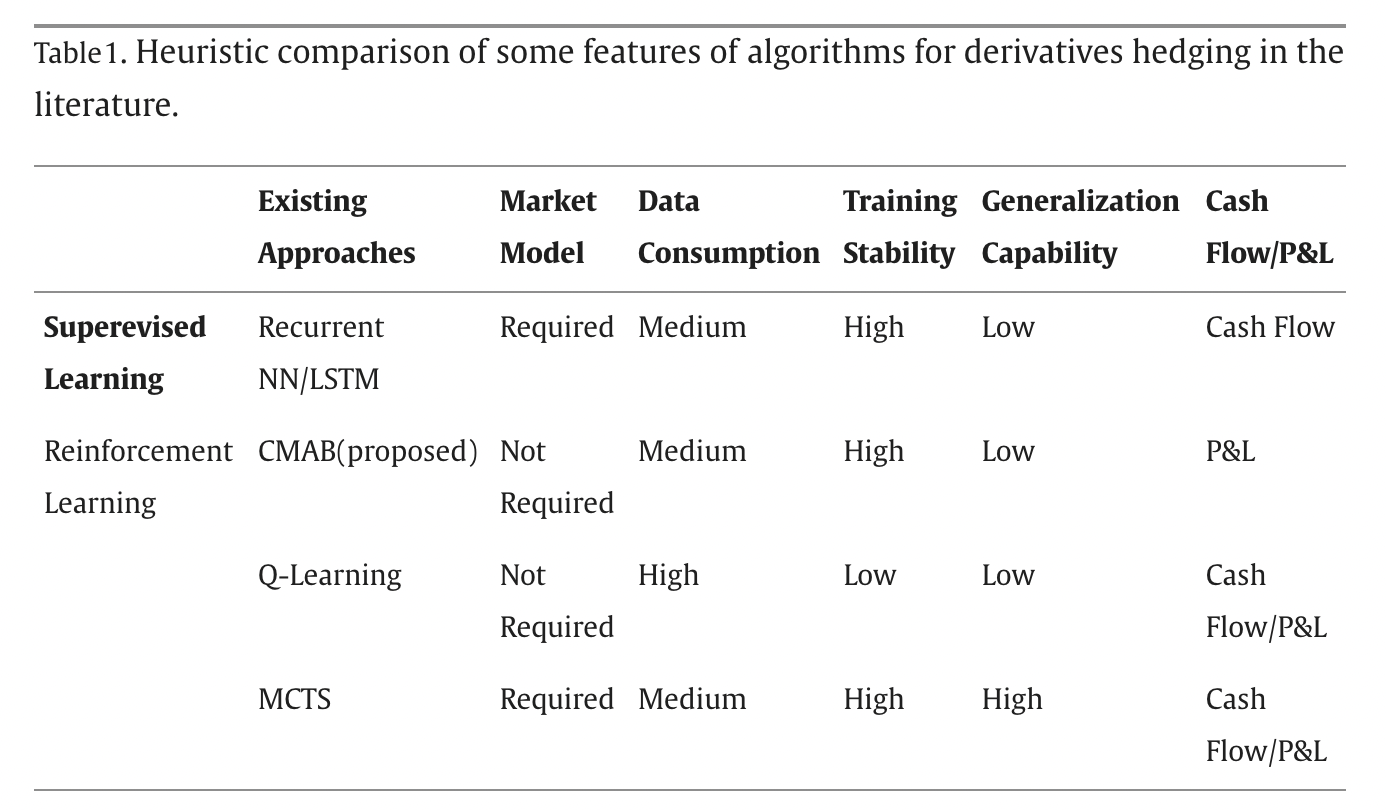This Paper Explores AI-Driven Hedging Strategies in Finance: A Deep Dive into the Use of Recurrent Neural Networks and k-Armed Bandit Models for Efficient Market Simulation and Risk Management

[ad_1]
Artificial intelligence is used in all spheres of life, providing utility in all fields. It is used in finance, too, for managing risks associated with complex investment products known as derivative contracts. However, due to high transaction costs and other limitations, continuous trading may not be feasible. As a result, investors frequently make discrete portfolio adjustments to balance replication errors and trading costs while considering their risk tolerance levels. Combining RL with deep Neural Networks (NNs) has demonstrated remarkable capabilities for finance.
Consequently, a research team from Switzerland and the U.S. studied the application of RL agents in hedging derivative contracts in a recent study published in The Journal of Finance and Data Science. They emphasized that the primary challenge lies in the scarcity of training data, so the researchers must rely on accurate market simulators. Yet, creating such simulators introduces financial engineering problems, requiring model selection and calibration and resembling traditional Monte Carlo methods.
This study is based on Deep Contextual Bandits, well-known in RL for their data efficiency and robustness. Driven by the operational reality of actual investment businesses, it integrates end-of-day reporting needs. It is distinguished by a notably reduced need for training data compared to traditional models and flexibility to adjust to the ever-changing markets. Deep Contextual Bandits also solve limited training data issues, showcasing the potential to overcome these hurdles. The study’s findings add to the growing body of knowledge regarding AI applications in finance and satisfy the needs of actual investment firms.
This model is more useful in real-world circumstances by incorporating characteristics inspired by genuine investment organizations’ activities. The framework is designed to integrate realistic elements, such as the necessity for end-of-day reporting, and to require less training data than conventional models. A researcher said training AI on simulated market data works well only when the market reflects the simulation. He highlighted the necessity for effective data use by stressing the significant amount of data many AI systems consume. Another researcher highlighted the challenge of considering AI model-free due to market data scarcity for training, particularly in realistic derivative markets.
The researchers evaluated the framework’s performance and found that the model outperforms benchmark systems in terms of efficiency, adaptability, and accuracy under realistic conditions. Data availability and operational realities, such as end-of-day reporting requirements, are important in shaping investment bank work. While not entirely model-free, the study’s approach is designed to address the limitations imposed by data availability and operational constraints.
In conclusion, this research shows that integrating AI into derivative contract hedging is a promising risk management avenue in investment banking. The study’s findings contribute to the evolving landscape of AI applications in finance and offer a practical solution that aligns with the operational demands of real-world investment firms. This research also highlights that while further investigation and refinement are necessary, the potential benefits of combining RL and derivatives contract management offer insights for both academics and practitioners alike.
Check out the Paper. All credit for this research goes to the researchers of this project. Also, don’t forget to join our 35k+ ML SubReddit, 41k+ Facebook Community, Discord Channel, LinkedIn Group, and Email Newsletter, where we share the latest AI research news, cool AI projects, and more.
If you like our work, you will love our newsletter..
![]()
Rachit Ranjan is a consulting intern at MarktechPost . He is currently pursuing his B.Tech from Indian Institute of Technology(IIT) Patna . He is actively shaping his career in the field of Artificial Intelligence and Data Science and is passionate and dedicated for exploring these fields.
[ad_2]
Source link
